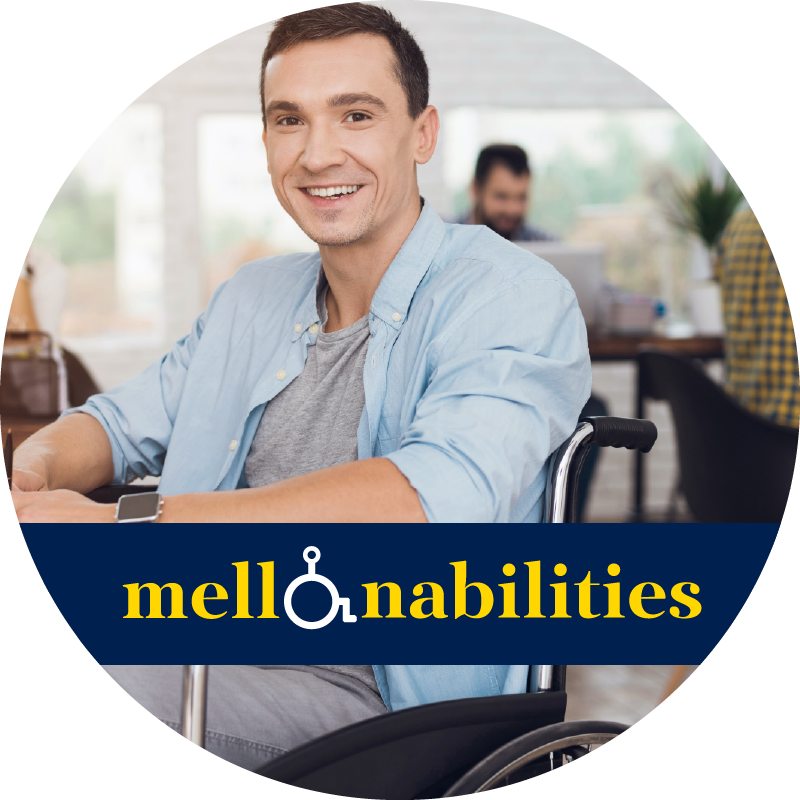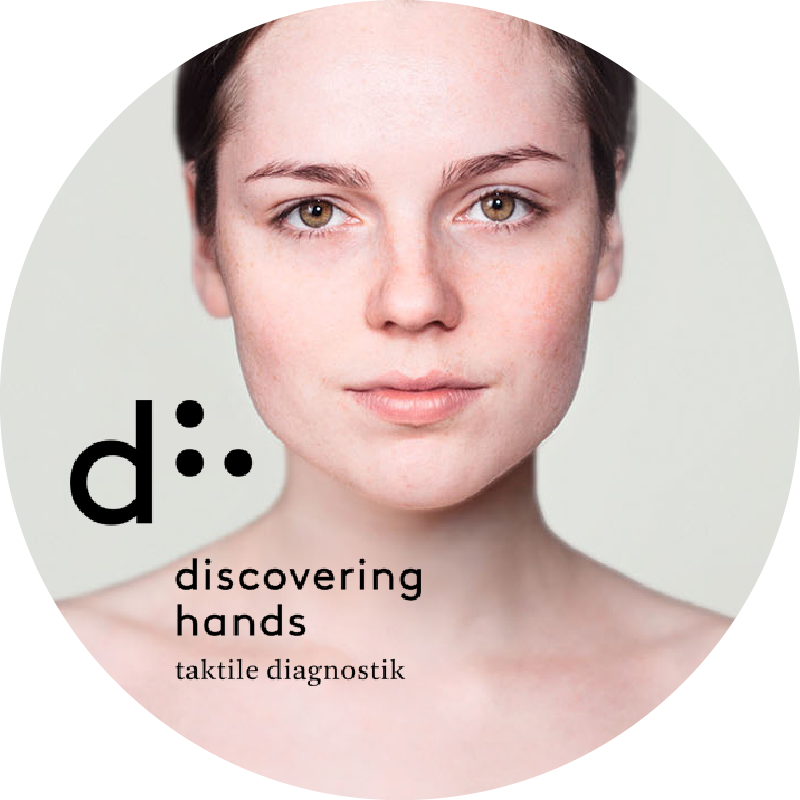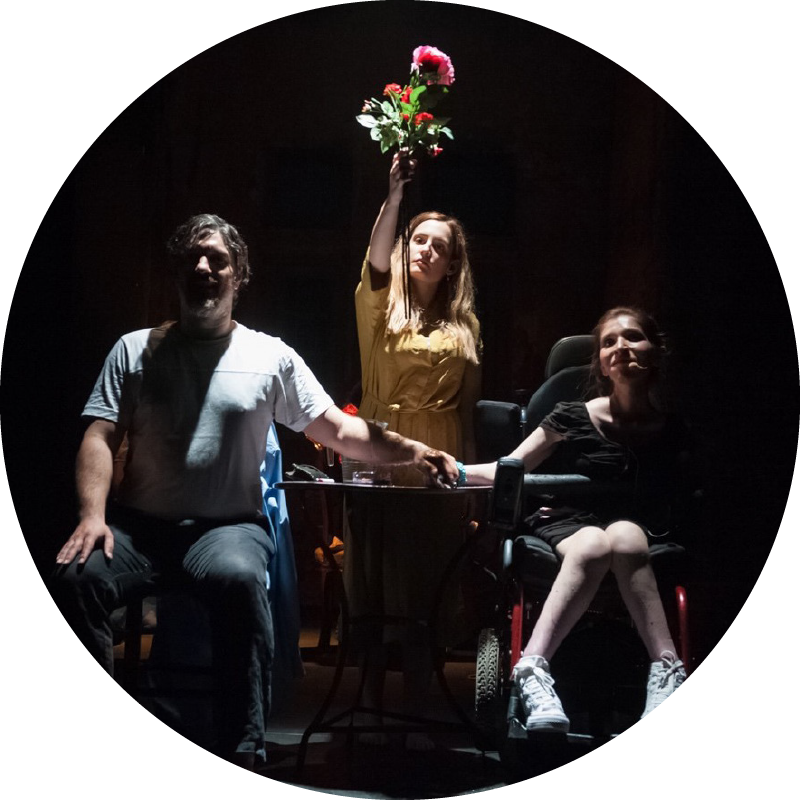Inclusion is good for business! Some organizations around the world have discovered innovative ways to include persons with disabilities in their workforce tapping into their unique abilities and taking their business into new heights.
40 HOURS OF TRAINING GET A JOB FOR A PERSON WITH DISABILITY
MellonAbilities is an upskilling and reskilling skills intensive programme that enhances the entry and stay of people with disabilities in the job market. The programme adopts a personalized approach and strengthens each person individually, in a tailor-made way, on the basis of their own profile, needs and aspirations, serving their own professional choices, facilitating the matching with market and employment positions.
It is an initiative of MYTILINEOS in collaboration with Knowl Social Enterprise, and offers at zero cost training in soft, hard and digital skills by trained and experienced consultants from the fields of Education, Psychology and Human Recourses.

BLIND WOMEN DETECT BREAST CANCER
Blind and visually impaired women have a special ability: an outstanding sense of touch and thus special tactile abilities.
“discovering hands” trains these women to become professional medical tactile examiners (MTUs) in a 9-month training course and then, they are employed in the context of early breast cancer detection. MTUs feel around 30 percent more tissue changes than doctors!
Qualified in this way, these women can use their outstanding abilities to detect even very small changes in breast tissue at an early stage.
This globally unique concept, brings inclusion to the health care sector in a completely new way: significantly increases patients’ chances of survival through a less harmful treatment, while offering a meaningful and sustainable occupational field for blind and visually impaired women not “despite their disability” but “because of” their specific skills.

AN INCLUSIVE THEATER GROUP IMPRESSES IN GREECE
ARTimeleia is a theatre group consisted of actors with and without physical/kinetic disabilities. Its primary aim is to explore the unlimited possibilities that the physical limits offer in an integrated theatrical environment. And so far the outcome is miraculous!
The continuously developing acting skills of both the disabled and the non-disabled actors are unique based on the method ‘a neurological approach to acting’ developed by their artistic director, Annita Kapousizi. This inclusive environment creates a high quality artistic result, welcomed by colleagues and art critics.
Artimeleia is a Greek word that means ‘whole and healthy’. For the group, ‘artimeleia’ defines the wholeness and health through ‘art’.

PEOPLE WITH DISABILITIES CAN ALSO WORK AT… AN EXTREME ADVENTURES CENTER!
David Wilson has restricted use of his right arm. He came to Todds Leap to do a forklift driving course, something his previous employer had not permitted due to his disability. With some extra tuition and practical experience David passed the course. He then successfully applied to become a part time instructor with Todds Leap with the adjustment of some extra help on site to carry equipment.
Todds Leap is involved in the running of an outdoor activity centre that offers a range of adrenaline pursuits and extreme adventures for customers of all ages and abilities.
Their motto is – ‘Todds Leap: No limits. No exclusions’. The company believes that with the right mix of training, diversity, technology and awareness, the activity centre runs more efficiently and productively with the inclusion of employees from different backgrounds and abilities.
Todds Leap has employed 12 members of staff with disabilities over the past seven years. Each disabled employee is treated as an individual. Through consultation, induction, training and review, employees are able to meet their full potential, build confidence and a sense of achievement. Where needed, expert advice is obtained and adjustments made. For instance, an office employee has hearing loss. A headphone was purchased for her and the office layout was altered to improve the flow of sound waves.
Todds Leap invests significantly in staff training and employees have attended disability awareness and ‘Tools and Techniques for Disability Inclusion’ workshops.
WELLNEA: A BEAUTY SALON FOR EVERYONE
WELLNEA is a beauty salon in Slovakia and the workplace of six disabled young adults, and 13 non-disabled employees, many of whom are at risk of social exclusion for various reasons. The salon provides a complete service beauty salon, including hair– dressing, cosmetics, pedicures, manicures, and massages and produces jewellery and bio-cosmetics.
The programme has been awarded the ‘Family-Friendly Employer’ title by the Ministry of Labour, Social Affairs and Family of the Slovak Republic along with the ‘Social Business ASHOK Changemaker Award.’
It is the mission of WELLNEA to positively change the condition of supported employment of people with disabilities in Slovakia for the better. In addition to this, the program aims to create more effective and beneficial employment policies for persons with disabilities in Slovakia. Since its inception, WELLNEA has employed 20 people with a disability, many of whom have been able to integrate into the open labour market thanks to the job skills learned at WELLNEA.
A BLIND EMPLOYEE BUILDS A SMARTPHONE APP FOR THE VISUALLY IMPAIRED
Saqib Shaikh, a software engineer who leads Microsoft’s Seeing AI team, has had a lifelong relationship with advancing inclusive digital technology. Throughout his 15 years at Microsoft, he has channelled his own experience as someone who is blind to champion and drive product accessibility by exploring how AI can empower people with disabilities to become more independent in their daily lives.
His vision began with a dream to build eyeglasses that could observe and describe the world around him. This dream evolved into a collaborative research effort with fellow Microsoft colleagues that resulted in Seeing AI, a smartphone app that uses computer vision to audibly dictate menus and documents, product barcodes, currency, and recognize people – even their facial expressions.
As Microsoft continues to build its culture of inclusion, several other members of leadership have recently opened up about their disabilities and discussed how their unique perspectives enable them to develop products that work better for everyone.
A HOTEL CHAIN IN INDIA HIRES PEOPLE WITH DISABILITIES AND SEES ITS BUSINESS FLOURISH
Lemon Tree Hotels Limited, the largest hotel chain in India in the mid-priced segment with 82 hotels, employs approximately 550 persons with disabilities, accounting for 11-12% of its workforce.
Lemon Tree hires people with a range of physical, intellectual/developmental and special learning disabilities across nearly every department. Training is infused throughout the organization for all disability types. For example, new recruits must take an introductory sign language course so they can communicate with non-hearing colleagues, and managers receive higher-level courses.
Employees undergo training on how to work with colleagues with disabilities, for example by avoiding making too many last-minute changes to schedules, since advance planning is often key to an employee with a disability’s successful navigation of daily life and work. It’s clear that extra training has contributed to the success of the chain and of individual employees.
In housekeeping, hearing-impaired staff have been more productive than their hearing colleagues, while hearing-impaired restaurant workers are often far quicker to notice customers who are trying to attract a waiter’s attention.
Lemon Tree’s commitment to hiring persons with disabilities and training everyone to work well together is a source of pride that generates high morale among all its employees.
BEING DEAF IN AN INCLUSIVE EUROPE
One of the major barriers to for Deaf people is the lack of recognition, acceptance and use of sign language in all areas of life as well as lack of respect for Deaf people’s cultural and linguistic identity. This leads to marginalization of Deaf people. By raising the level of awareness for the entire society on this issue this attitude can be changed and the Deaf Community can be recognized as linguistic community.
5 non – profit organisations from 5 European countries (Romania, Slovakia, Turkey, Poland and German), with experience in working with Deaf people and in producing multimedia educational or informative materials using Sign Language, have joined forces in order to reduce disparities in learning outcomes affecting Deaf Adult Learners through an Erasmus+ Project.
For this purpose, they have developed social and professional abilities of integration for the adult deaf and hearing impaired persons by informing them about the labour market, the opportunities that digital technology and it’s continuum upgrading offers them in terms of communication and social integration, Human Rights, social integration abilities, Deaf Community Culture, as well as by facilitating the access to Open Educational Resources for Deaf people through the creation and development of a free e-Learning Platform containing video informative materials on various topics of interest for Deaf Community using Sign Language as primary means of communication.

